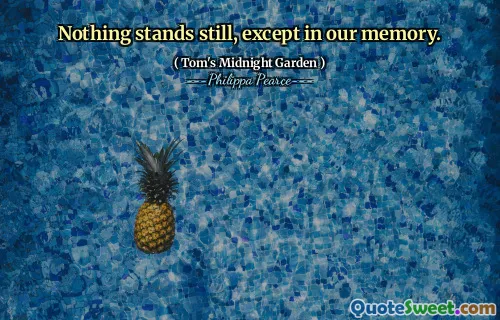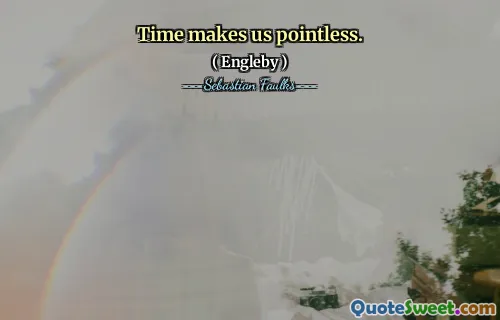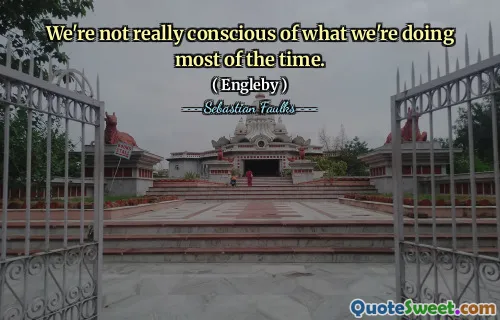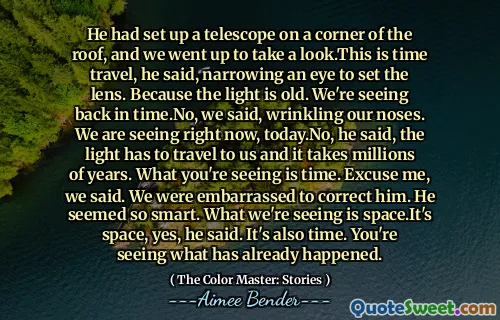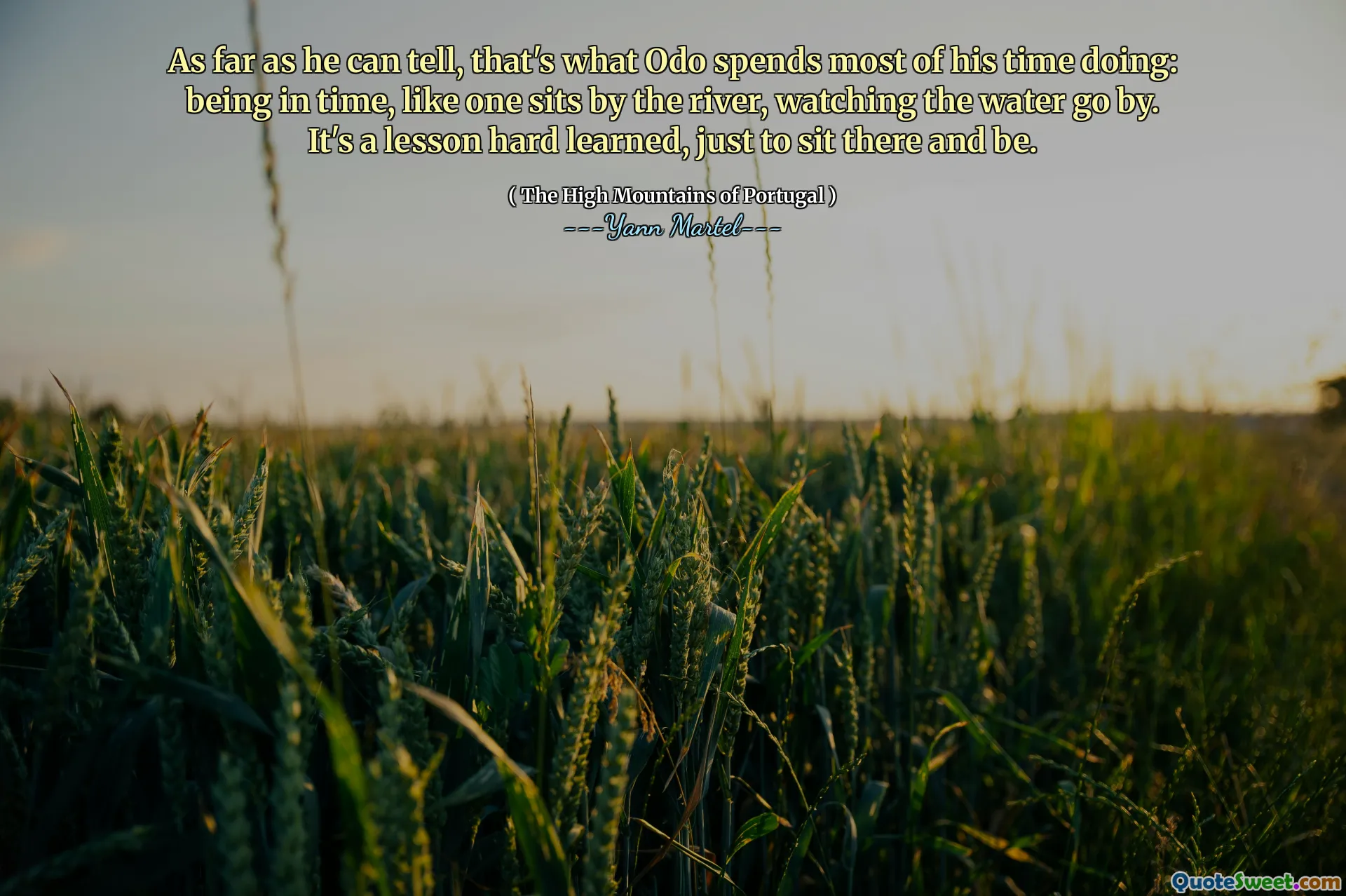
As far as he can tell, that's what Odo spends most of his time doing: being in time, like one sits by the river, watching the water go by. It's a lesson hard learned, just to sit there and be.
This quote from The High Mountains of Portugal offers a profound meditation on the nature of existence and presence. It paints a beautiful picture of Odo's way of spending his time, likening it to sitting quietly by a river, observing the water flow. This imagery invokes a sense of peace and tranquility, highlighting the act of "being in time" as an art captured by stillness and mindfulness.
In today’s fast-paced world, practicing such mindful presence—simply sitting and allowing oneself to be—can be a challenging lesson, indeed. It reminds me that much of our inner turmoil stems from a resistance to the passage of time and an aversion to just existing without immediate productivity. The quote suggests a powerful spiritual truth: genuine wisdom often lies in acceptance and in the conscious experience of the present moment without distraction.
The phrase "it's a lesson hard learned" acknowledges that embracing this state of presence is no mere casual act but an acquired skill, possibly the fruit of long reflection or even suffering. This resonates deeply with many philosophies and meditative traditions that emphasize the importance of stillness and surrender. There’s a quiet dignity in observing the river's flow—it's a metaphor for life itself, continuous, ever-moving, impossible to grasp or control, yet beautiful all the same.
Ultimately, this quote inspires readers to consider their relationship with time, to slow down and witness the world without haste, and to practice patience with themselves and their journey. It's an invitation to find peace through simple being rather than relentless doing.

